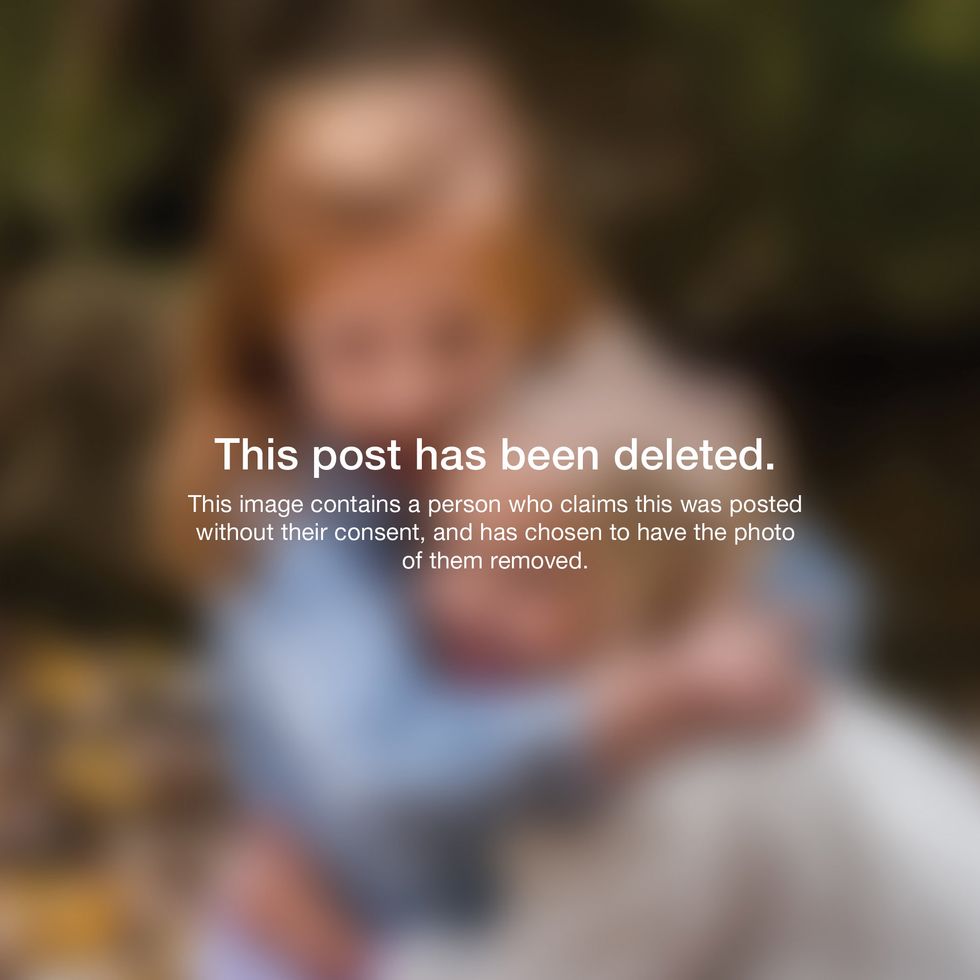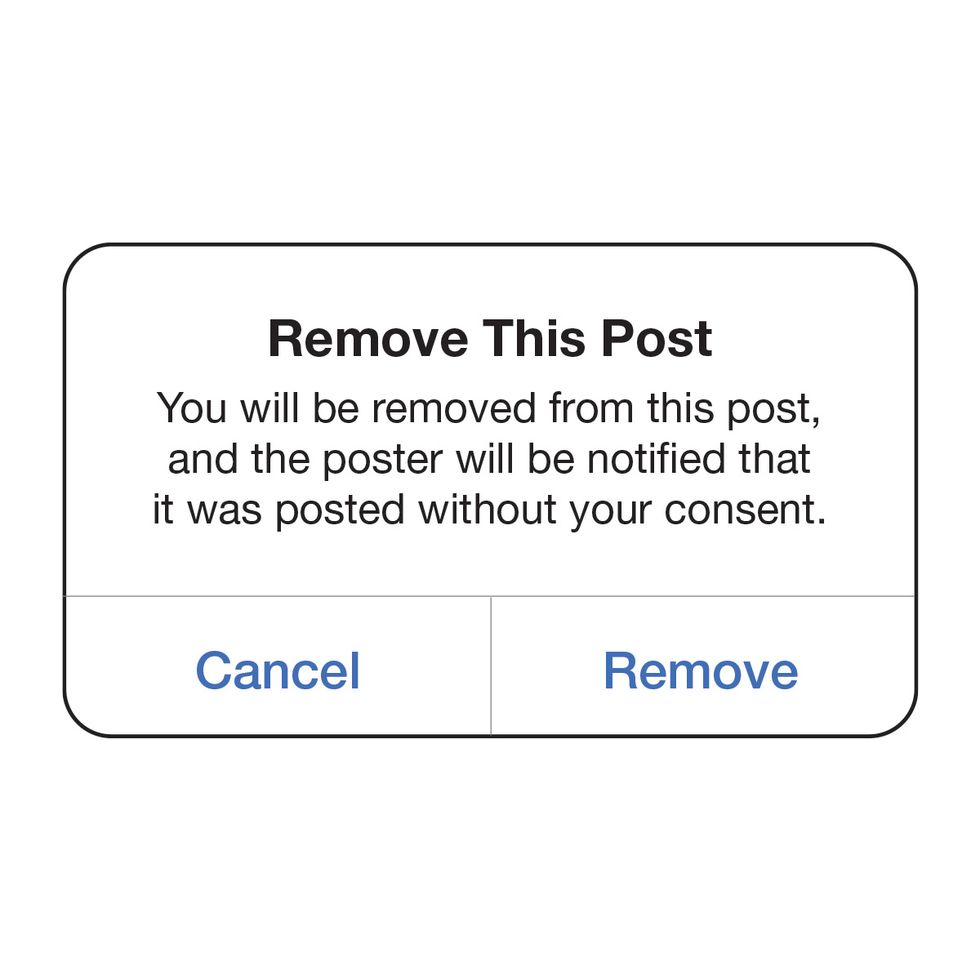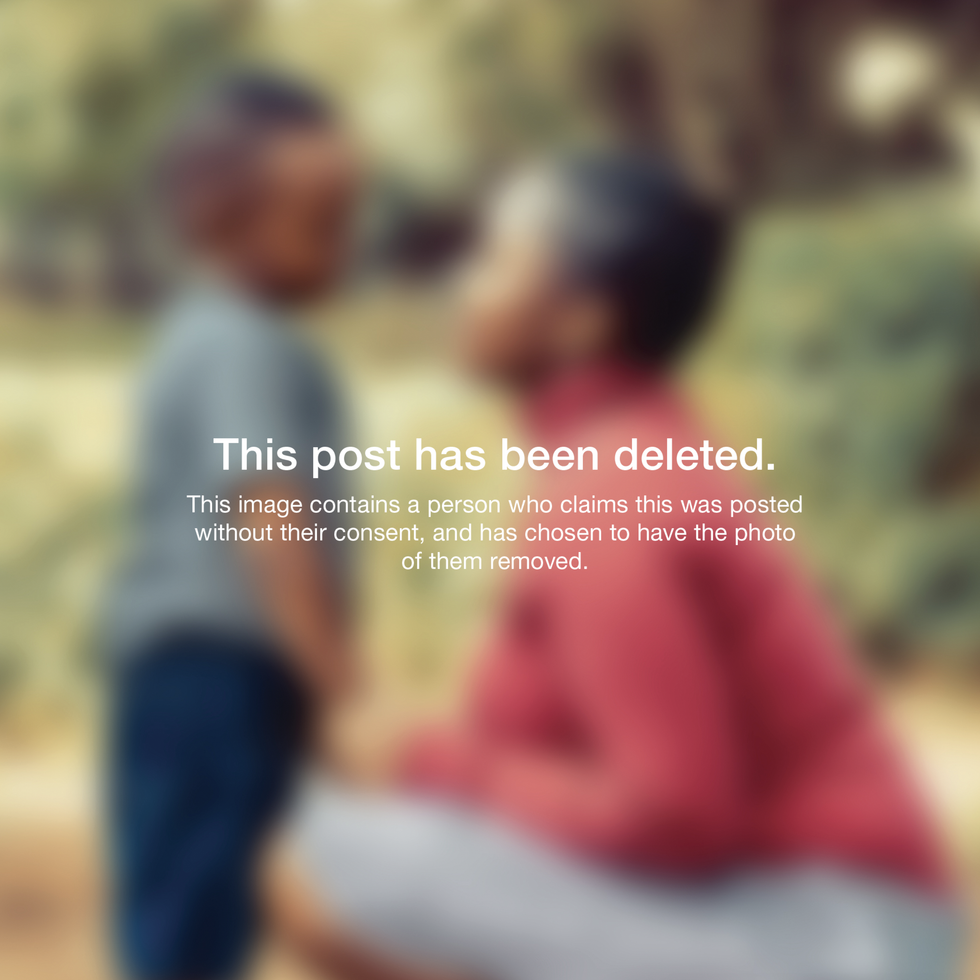
Whether they're Kylie Jenner or DJ Khaled or that girl you're still following from high school, Instagram parents sure are taking up space on the feed. Baby photo albums have existed since the early days of social media, uploaded to Flickr then Facebook and now Instagram, but today it's common practice to create separate accounts just for newborns, and to make them publicly accessible. Some of Instagram's most-followed accounts feature children under the age of 13 — you've probably seen more photos of KarJenner offspring than you have of yourself as a toddler.
Related | Doja Cat: Reloaded
In ten years, when the cute kids of Instagram grow up, will they resent their digital childhoods? Lawyers and privacy experts warn that those awkward years will live on the undeletable Internet forever, just waiting to be uncovered by future employers or harvested for data by facial recognition services — parents who uploaded photos of their young children to Flickr back in 2005 recently re-discovered them on the database MegaFace, which trains surveillance algorithms used in counter-terrorism and law enforcement. The parents who continue to post anyway argue that everyone else is doing it, so why shouldn't they? Perhaps, during an era where digital brands create lucrative careers, their kids will be grateful for the head start in online life.
What seems certain is that if kids do object to having their growing pains uploaded for all to see, they won't have much legal recourse — at least not in the United States. Some European countries predicted social media privacy concerns before they were headline news; during Facebook's peak in the mid-2010s, a viral campaign successfully convinced many French parents to stop posting photographs of their children on the social media network. French privacy law now dictates that anyone non-consensually publishing and distributing images of another person, including a minor, can lead to a one-year prison sentence plus a hefty fine. The EU's General Data Protection Regulation, meanwhile, enshrines a "right to be forgotten," which enables people to request their data be deleted from the web.
"Unfortunately in the US, at least right now, we don't have the same privacy protection," explains New York-based attorney Joshua Blum, an IP expert. There aren't many civil avenues, either. All states follow the Parental Immunity Doctrine, which ensures children are unable to sue their parents while they remain minors, as judicial precedent. So if mom and dad want to post a photo without a child's permission, they absolutely can.

Of course, parents don't share photos of their kids with the intention of embarrassing them down the line or exposing them to predators. Presumably, most Instagram baby accounts exist for convenience more than anything else. In 2019, it's a natural impulse to share every aspect of one's life, procreation included, and social media is certainly a convenient way to swap baby photos with far-away family and friends. You might just want to rein things in a little.
"Parents have to take some more responsibility and be a bit more mindful and aware that while it may seem cute, or funny, or whatever today, it may not seem so cute, funny, or whatever, fifteen years down the road," Blum says. "And some of that, I think, has to be some personal responsibility, parental responsibility. Sort of, think before you click." Accounts should be private, shouldn't use real names and should avoid identifying geographical markers. It's also wise to avoid posting in real time. Photos from a private Instagram account shouldn't show up during a Google search.
Blum suggests that in the future, Silicon Valley could share the burden. "These entities could implement some agreement where stuff that's posted online gets removed after a period of time. It doesn't just stay up there in perpetuity."
Related | How Kelvin Peña Became Brother Nature
Not every Instagram parent is worried about privacy. A growing number of users have recognized the platform's potential to make their kid rich, famous and as publicly accessible as possible. Social media can build a brand from birth, and kickstart the modeling or acting career of a genetically blessed child. There's @babychanco (399k followers), whose unusual mop of hair gained her a global fanbase and a Pantene advertising deal. Or child model @ellagross (3.5 million followers), whose Baskin-Robbins advertising deal came under fire from critics who accused it of sexualizing an 11-year-old. Or @clementstwins (1.4 million followers), which chronicles nine-year-old sisters Ava and Leah. The twins are signed models with numerous branding deals; Google their names and you'll get several pages' worth of headlines about them being "the world's most beautiful twins."
Jaqi Clements, who has run @clementstwins with her husband Kevin from their home in Los Angeles since 2017, says she's mindful of how the twins handle the "beautiful" label. "In our house, we really don't dwell on labels or words like that but rather open up the lines of communication and discuss why or how people come up with the terms that they use to describe them," she explains over email. "We choose to brush the comments off more than embrace them because we don't want the girls to think any of what is said defines them. If they are called 'famous' or 'Instagram famous,' we explain to them that being famous really just means that people recognize them, and that a lot of people are famous, so it's not really a big deal."
Privacy issues, Jaqi says, are "pretty hard to prevent when [the twins] are considered public figures and being public figures is what has gotten them to this point." But she and her husband are careful to accompany the twins at public events and "make sure people are being respectful." The twins don't have access to the Instagram account but are allowed to occasionally scroll, and they like to see which images their mom ends up posting.

Who can blame the Instagram mom who comprehends the depressing fact that a digital brand will probably serve her child better in this uncertain century than a fancy college degree ever could? Mae Karwowski, founder and CEO of the New York City-based influencer marketing agency Obviously, points out that the desire to show off our kids to a mass audience is nothing new. "I think those motivations and desires to put your child in front of the camera have been here for a while," she says. "I mean, it's the whole pageant mom phenomenon. But now you don't need to spend thousands of dollars on dance outfits for your kid and go to competitions; you can just film them being cute, any time. It makes it really easy, so I think a lot of people indulge that impulse more." (For what it's worth, there's still quite a lot of effort involved with Instagram showbiz parenting. When Jaqi started Ava and Leah's account, "Little did I know that I would be spending four to five hours in traffic a day a few times a week driving the girls to auditions, jobs, events, premieres and photoshoots, which ultimately results in 10- to 12-hour days for all three of us most of the time.")
Some Instaparents use images of children to further their own careers. Many so-called mommy bloggers have made the switch from WordPress to Instagram, where a single DSLR shot of siblings lined up in height order gets just as much engagement as an essay-length blog post would. Maybe more. Needless to say, these moms are beloved by sponcon brands. "Moms are some of the easiest influencers to work with," Karwowski explains. "Really professional, really organized, do a great job compared to other types of influencers."
There's a pureness of intent to many "sharenting" accounts. @leialauren, AKA "The Momo Twins" (319k followers), became popular when their Singapore-based mom Amber Yong got honest about her journey giving birth to the twins prematurely due to them sharing the same amniotic sac in her uterus. "We were able to connect with a like-minded community to learn and share parenting experiences and tips, being first-time parents," Yong explains. "We wanted to document their growing journey, being significant to us as they were born preemies." (It helps that Leia and Lauren are also completely adorable.)
Related | No, Your Phone Isn't Listening to You
Karwowski and her team at Obviously are already witnessing the shift of Instagram children outgrowing the brands their parents have built for them. "It can go a couple ways," she says. "One, a child is a part of it, it becomes their project and they really take control. Or, they break with their parents and they don't want to do it anymore and the account ends up shutting down. Normal adolescent behavior. And it's normally their right and their choice, and we never want people to be having an account where they really feel they're doing it against their will. The same way you wouldn't want a child star to be acting against their will and not wanting to do it anymore."
Both Clements and Yong would be open to deleting their accounts in the future, if it came to that. But they won't be able to delete the Google search results. "It's not as simple as just saying, 'Yes, let's delete this Instagram account,'" Clements says. "It would basically be deleting everything all three of us have worked extremely hard for over the past few years to get them to where they are today."
Karwowski agrees that the transition can be messy. "It's interesting where a parent is primarily featuring their children and they really start relying on it as a revenue stream, and that's where it gets a little tangled, just like it does when the mom is the manager of a child when they're on a TV show," she says. "One thing about influencer marketing is that it is so new that a lot of talent managers don't know how to really do the best by their clients, how to transition them out."

Other options are emerging, where both parent and child can recalibrate their brand while retaining its rabid audience. Ryan's World (formerly Ryan ToysReview), a wildly lucrative YouTube unboxing channel starring eight-year-old LA resident Ryan Kaji and filmed by his mom, has begun to gradually replace its star with colorful animations. When Ryan ages out of toy reviewing, he has an ageless replacement wearing a cape ready to swoop in. "It's smart because they've turned him and his family into cartoons, so they can separate the child from the popularity and demand," Karwowski says. "So that character can live on. They've created a business out of it that doesn't require Ryan to be filming multiple hours per day. People are getting savvier."
Sharenting may seem sinister to some, but if parents don't create social media profiles for their kids, their kids will probably create those profiles for themselves. In accordance with the Children's Online Privacy Protection Act, Instagram's minimum user age is 13, but that's tricky to enforce. Many children will start asserting a social media presence as soon as they gain the means to, and like all tweens and adolescents, they'll share impulsive, half-formed thoughts and opinions they may later regret. So while there are legitimate concerns over the possibility of children growing up to become embarrassed by the photos their parents posted when they were kids, it's probably just as, if not more, likely that they'll be plenty embarrassed by the photos, tweets, Snapchats and TikToks they post on their own. Perhaps some parental supervision is actually needed in these cases.
"There really are kids out there who want to be famous," Karwowski notes. "I talk to so many young kids now who want to be influencers when they grow up. And when I meet these kids, a lot of them already have big followings. They're already thinking in that way." If their parents already gave them a head start, so what? "Kids who have grown up taking videos and photos with their parents so consistently, they're used to it," she says. Fame has always been generational; the children of famous musicians and Hollywood stars have a greater chance at success than industry outsiders. In the future, all of our favorite celebrities will be online content creators, and their cute camera-ready kids will be at a significant advantage.
Related | Break the Internet: Pete Davidson
When Instagram's babies grow up and Google themselves, they won't know any different. "We're just going to get used to it," Karwowski says. "There's such a blurring of offline and online identities that it's going to seem pretty normal." Blum agrees. "It's going to have to change, the concept of what we consider private anymore. Maybe we need to have a more expansive understanding of privacy so that flowing information may still be subject to privacy protection."
The concept of growing up online still seems a little scary in 2019. But we'll lose those fears soon enough. The right to be forgotten? In the coming decades, when the Internet is even more flooded with personal photos than it is currently, everyone will be fighting to stand out.
From Your Site Articles
- Instagram Is Updating Discriminatory Nudity Policies - PAPER ›
- Instagram Is Updating Discriminatory Nudity Policies - PAPER ›
- Razzies Remove Ryan Kiera Armstrong From "Worst Actress" Nominees ›
- Razzies Remove Ryan Kiera Armstrong From "Worst Actress" Nominees ›
- @PetShopBoy’s Instagram Stories Are What You Need ›